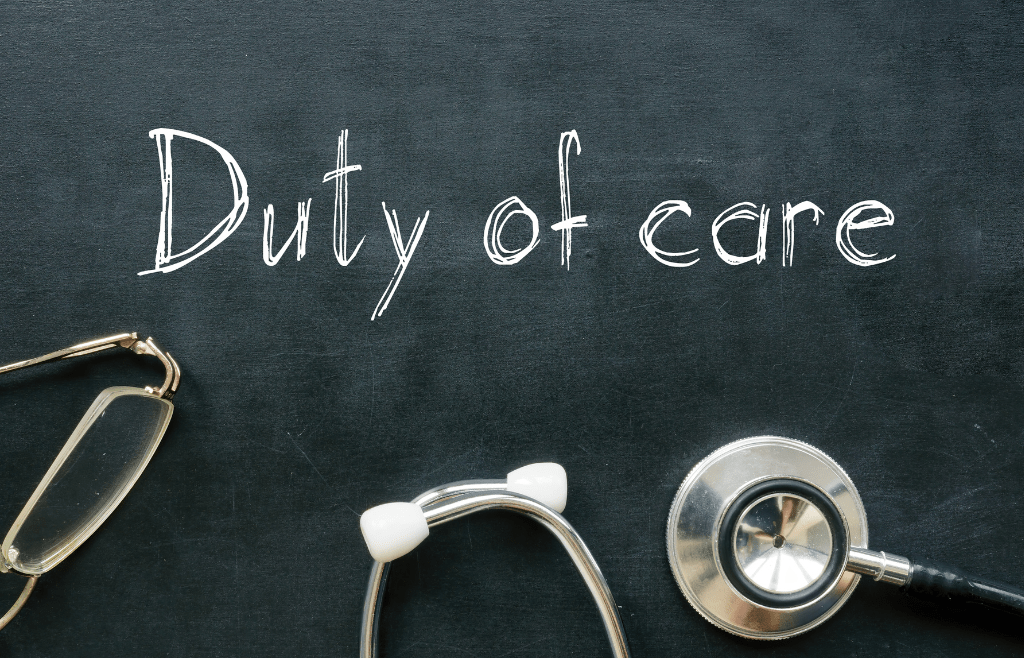Personal injury claims can arise from a variety of circumstances such as car accidents, slip and falls, medical malpractice, and more. When such accidents occur, it’s important to determine who is responsible for the injuries and damages suffered.
The concept of duty of care plays a critical role in these cases, as it defines the legal obligation of individuals or entities to act reasonably and prudently to prevent harm to others. In this article, we will delve into what it means and how it impacts Texas injury claims of all types.
Understanding Duty of Care
Duty of care is a legal concept that forms the foundation of Texas personal injury law. It refers to the responsibility that individuals and entities have to avoid causing harm to others through their actions or inactions. In other words, everyone has a duty to take reasonable care not to cause harm to others.
In personal injury cases, duty of care is crucial because it helps determine whether the defendant is liable for the plaintiff’s injuries. To establish liability, the plaintiff must prove that the defendant breached their duty of care, and that breach caused the plaintiff’s injuries.
Examples of how duty of care may be breached include:
- A driver failing to obey traffic laws and causing a car accident
- A property owner failing to maintain their premises and causing a slip and fall accident,
- A healthcare professional providing substandard care that leads to a patient’s injury.
If the plaintiff can prove that the defendant’s breach of duty caused their injuries, they may be entitled to compensation for damages such as medical expenses, lost wages, and pain and suffering.
Proving Duty of Care in Texas Personal Injury Cases
To prove duty of care, you must present evidence showing that the defendant had a responsibility to act in a certain way and failed to do so. This means that you need to establish the following:
- The defendant had a legal obligation to act in a way that would not harm you. For example, a doctor has a duty of care to provide competent medical treatment to their patients.
- They failed to uphold their duty of care. Examples include a doctor who botches a surgical procedure.
- The defendant’s breach directly caused your injuries. For example, if a doctor’s surgical error causes you to suffer complications, you would need to show that those complications were directly caused by the surgery.
- You suffered damages as a result. Damages can include physical injuries, emotional distress, and financial losses.
To meet the above criteria, you will need to provide evidence such as medical records, witness statements, and expert testimony. This step can be complicated, which is why it’s important to work with a personal injury lawyer who can help you build a strong case and argue for the compensation you deserve.
Importance of Hiring a Personal Injury Attorney
While you’re not legally required to obtain representation, claimants who do so invariably realize a better outcome. A skilled lawyer has the knowledge and expertise needed to:
- Navigate the legal system
- Negotiate a fair settlement with insurance companies
- Provide guidance on the best course of action to take based on the specific circumstances of your case.
Additionally, having an attorney on your side can help alleviate the stress and anxiety that often accompany the aftermath of an accident. They can handle the legal aspects of your case while you focus on your recovery. So if you’ve been injured in an accident, don’t hesitate to seek the help of an experienced personal injury attorney to ensure that your rights are protected and your voice is heard.
At Beaty Legal, PLLC, we fight for the rights of those injured by the carelessness or negligence of another party. Don’t leave your future to chance- let us help you achieve the settlement or verdict you need to move forward after a serious accident. To learn more or schedule a consultation, call (903) 287-5121.

